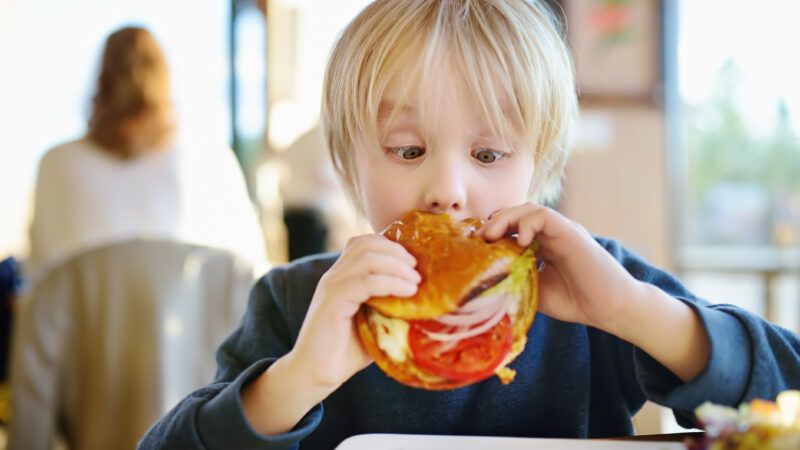The Pandemic Is Making Childhood Obesity Worse
But COVID-19 isn't the only culprit.

Who gained weight most rapidly during the COVID-19 pandemic? Kids.
In a study of 432,302 Americans aged 2-19, the Centers for Disease Control and Prevention (CDC) found "sharp increases in BMI rates occurred during the COVID-19 pandemic… and younger school-aged children experienced the largest increases."
Before the pandemic, 19.3 percent of children were considered obese. That figure has now risen to 22.4 percent—which might not sound like a very dramatic increase, but keep in mind that childhood obesity can have all sorts of lifelong ramifications, from diabetes to heart disease to depression.
Why were kids packing on the pounds during COVID-19? The CDC suggests several possible factors, including "increased stress, irregular mealtimes, less access to nutritious foods, increased screen time and fewer opportunities for physical activity (e.g., no recreational sports)." Those are the ideas I'd come up with, too, off the top of my head.
But other researchers I spoke with had some different theories. Jay Beckwith, considered "one of the fathers of the modern playground," said it could be that overwhelmed parents altered the family toward "more comfort and convenience food."
Suzanne Axelsson, an international play activist, agreed, saying that it's possible the food at home was not only more convenient, it was also cheaper—thanks to strained finances—and hence probably lighter on the quinoa/kale quotient.
But Peter Gray, a Research Professor in the Department of Psychology and Neuroscience at Boston College, said it may simply have to do with kids being home and hence near food all the time. "When you are home you can eat while you do almost anything," he says.
That's probably why kids were getting heavier over the years even before COVID-19. It wasn't just the lack of exercise, though a 2017 Johns Hopkins study did find 19-year-olds are now as sedentary as 60-year-olds. It's also that back in the day, kids were out and about playing so much that a lot of time they just weren't near a food source.
Gradually, childhood moved inside, thanks to the stranger danger panic, increased homework loads, and the ubiquity of electronic devices, meaning more kids ended up temptingly close to the kitchen. Even organized sports often feature a snack, and kids driven to and from those activities can eat in the car. School is almost the only time they are away from food for several hours. And of course, the pandemic rendered school virtual for many kids for more than a year.
When the CDC mentioned the loss of physical activity as an explanation for rising obesity rates, it referenced only "no recreational sports," meaning that even our health czars are not thinking about free play as a key part of kids' lives. It has dropped off their radar entirely.
It's unlikely that children will start slimming down again unless we normalize the idea of kids running around outside for hours on their own, far from the cupholders of the SUV, the snacks at the soccer practice, and the siren hum of the fridge just a few steps away. It's going to take more than the end of the pandemic to accomplish that.



Show Comments (44)